第11章
Suppose, for example, that I have made it my maxim to increase my fortune by every safe means.Now, I have a deposit in my hands, the owner of which is dead and has left no writing about it.This is just the case for my maxim.I desire then to know whether that maxim can also bold good as a universal practical law.I apply it, therefore, to the present case, and ask whether it could take the form of a law, and consequently whether I can by my maxim at the same time give such a law as this, that everyone may deny a deposit of which no one can produce a proof.I at once become aware that such a principle, viewed as a law, would annihilate itself, because the result would be that there would be no deposits.A practical law which I recognise as such must be qualified for universal legislation;this is an identical proposition and, therefore, self-evident.Now, if I say that my will is subject to a practical law, I cannot adduce my inclination (e.g., in the present case my avarice) as a principle of determination fitted to be a universal practical law; for this is so far from being fitted for a universal legislation that, if put in the form of a universal law, it would destroy itself.
It is, therefore, surprising that intelligent men could have thought of calling the desire of happiness a universal practical law on the ground that the desire is universal, and, therefore, also the maxim by which everyone makes this desire determine his will.For whereas in other cases a universal law of nature makes everything harmonious;here, on the contrary, if we attribute to the maxim the universality of a law, the extreme opposite of harmony will follow, the greatest opposition and the complete destruction of the maxim itself and its purpose.For, in that case, the will of all has not one and the same object, but everyone has his own (his private welfare), which may accidentally accord with the purposes of others which are equally selfish, but it is far from sufficing for a law; because the occasional exceptions which one is permitted to make are endless, and cannot be definitely embraced in one universal rule.In this manner, then, results a harmony like that which a certain satirical poem depicts as existing between a married couple bent on going to ruin, "O, marvellous harmony, what he wishes, she wishes also"; or like what is said of the pledge of Francis I to the Emperor Charles V, "What my brother Charles wishes that I wish also" (viz., Milan).
Empirical principles of determination are not fit for any universal external legislation, but just as little for internal; for each man makes his own subject the foundation of his inclination, and in the same subject sometimes one inclination, sometimes another, has the preponderance.To discover a law which would govern them all under this condition, namely, bringing them all into harmony, is quite impossible.
V.PROBLEM I.
Supposing that the mere legislative form of maxims is alone the sufficient determining principle of a will, to find the nature of the will which can be determined by it alone.
Since the bare form of the law can only be conceived by reason, and is, therefore, not an object of the senses, and consequently does not belong to the class of phenomena, it follows that the idea of it, which determines the will, is distinct from all the principles that determine events in nature according to the law of causality, because in their case the determining principles must themselves be phenomena.Now, if no other determining principle can serve as a law for the will except that universal legislative form, such a will must be conceived as quite independent of the natural law of phenomena in their mutual relation, namely, the law of causality; such independence is called freedom in the strictest, that is, in the transcendental, sense; consequently, a will which can have its law in nothing but the mere legislative form of the maxim is a free will.
VI.PROBLEM II.
Supposing that a will is free, to find the law which alone is competent to determine it necessarily.
Since the matter of the practical law, i.e., an object of the maxim, can never be given otherwise than empirically, and the free will is independent on empirical conditions (that is, conditions belonging to the world of sense) and yet is determinable, consequently a free will must find its principle of determination in the law, and yet independently of the matter of the law.But, besides the matter of the law, nothing is contained in it except the legislative form.It is the legislative form, then, contained in the maxim, which can alone constitute a principle of determination of the [free] will.
REMARK.